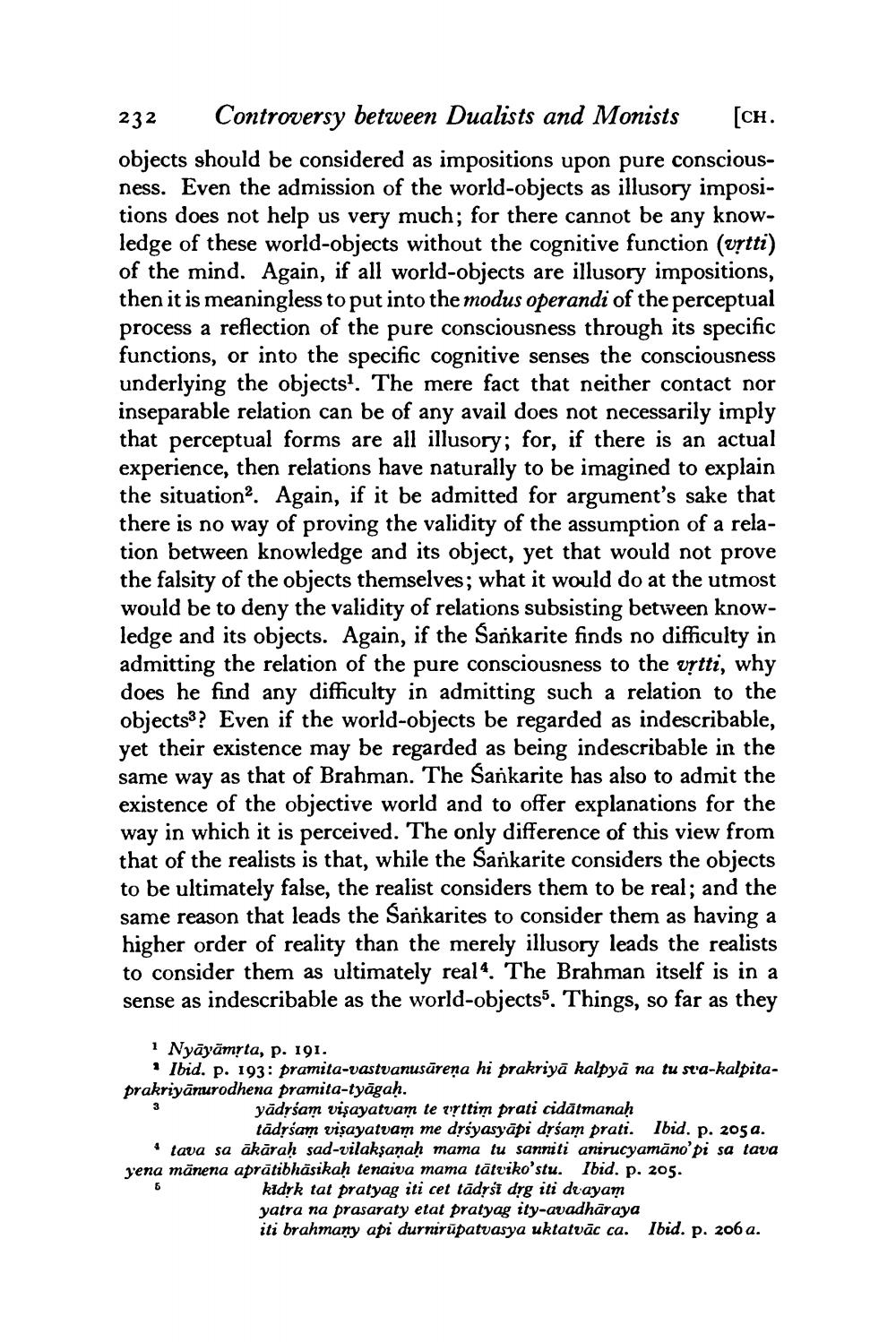________________
232 Controversy between Dualists and Monists [CH. objects should be considered as impositions upon pure consciousness. Even the admission of the world-objects as illusory impositions does not help us very much; for there cannot be any knowledge of these world-objects without the cognitive function (vrtti) of the mind. Again, if all world-objects are illusory impositions, then it is meaningless to put into the modus operandi of the perceptual process a reflection of the pure consciousness through its specific functions, or into the specific cognitive senses the consciousness underlying the objects. The mere fact that neither contact nor inseparable relation can be of any avail does not necessarily imply that perceptual forms are all illusory; for, if there is an actual experience, then relations have naturally to be imagined to explain the situation?. Again, if it be admitted for argument's sake that there is no way of proving the validity of the assumption of a relation between knowledge and its object, yet that would not prove the falsity of the objects themselves: what it would do at the utmos would be to deny the validity of relations subsisting between knowledge and its objects. Again, if the Sankarite finds no difficulty in admitting the relation of the pure consciousness to the vștti, why does he find any difficulty in admitting such a relation to the objects3? Even if the world-objects be regarded as indescribable, yet their existence may be regarded as being indescribable in the same way as that of Brahman. The Sankarite has also to admit the existence of the objective world and to offer explanations for the way in which it is perceived. The only difference of this view from that of the realists is that, while the Sankarite considers the objects to be ultimately false, the realist considers them to be real; and the same reason that leads the Sankarites to consider them as having a higher order of reality than the merely illusory leads the realists to consider them as ultimately real4. The Brahman itself is in a sense as indescribable as the world-objects. Things, so far as they
Ibid. p. 193: Pramita-tyāga om te top!
1 Nyāyāmsta, p. 191.
• Ibid. p. 193: pramita-vastvanusārena hi prakriyā kalpya na tu st'a-kalpitaprakriyānurodhena pramita-tyāgah.
yādrśam vişayatuam te vittim prati cidātmanah
tādssam visayatvam me drsyasyāpi drśam prati. Ibid. p. 205a. • tava sa ākāraḥ sad-vilaksanah mama tu sanniti anirucyamāno'pi sa tava yena mānena aprātibhäsikah tenaiva mama tātriko'stu. Ibid. p. 205.
kidyk tat pratyag iti cet tādrsi drg iti dvayam yatra na prasaraty etat pratyag ity-avadharaya iti brahmany api durnirupatvasya uktatvāc ca. Ibid. p. 206 a.




